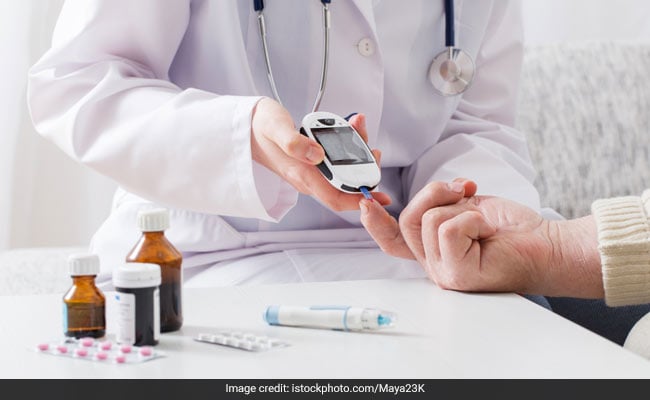Gestational Diabetes dis
Gestational Diabetes
What is it?
Gestational diabetes is caused when the body of a pregnant woman does not secrete excess insulin required during pregnancy leading to increased blood sugar levels.
What are the common terms associated?
Diabetes during pregnancy
What are the causes?
Gestational diabetes is caused when the body of a pregnant woman does not secrete excess insulin required during pregnancy leading to increased blood sugar levels.
Seek professional help?
How will I know whether my blood glucose levels are on target?
The health care team may ask you to use a small device called a blood glucose meter to check the levels on your own.
You will learn
• how to use the meter
• how to prick your finger to obtain a drop of blood
• what your target range is
• when to check your blood glucose
You may be asked to check your blood glucose
• when you wake up
• 1 or 2 hours after first bite of your main meals
The following chart shows blood glucose targets for most women with gestational diabetes. Talk with your health care team about whether these targets are right for you.
Blood glucose Targets for most women with gestational diabetes:
On awakening: 70- 90mg/dl
1 hour after a meal: 120- 130 mg/dl
2 hours after a meal: 100- 120mg/dl
Each time you check your blood glucose, write down the results in a record book. Carry the book with you when you visit your health care team. If the results are often out of range, the health care team will suggest ways by which you can reach the targets.
Glycosylated Hemoglobin - The HbA1c measures the amount of glucose that is being carried by the red blood cells in the body. It is targeted less than 6%.We can repeat this test every month.
What is the treatment?
The goals of treatment are to keep blood sugar (glucose) levels within normal limits during the pregnancy, and to make sure that the growing baby is healthy
One can keep their blood glucose in control with the help of a
- a planned meal
- physical activity
- insulin (if needed)
Meal Plan
A dietician or a diabetes educator will plan your meal to help you choose foods that are healthy for you and the baby. The plan will provide guidelines on what foods to eat, how much and when to eat. Choices, amounts, and timing are all important in keeping the blood glucose levels in the target range.
You may be advised to:
- Limit sweets
- Eat three small meals and snacks every day
- Be careful about when and how much carbohydrate - rich food you eat. Your meal plan will tell you when and how much carbohydrates to eat at each meal and snack.
- Include fiber in your meals in the form of fruits, vegetables, and whole-grain crackers, cereals, and bread
Physical Activity
Physical activity, such as walking and swimming, can help control blood glucose levels. Discuss with your health care team about the type of activity that is suitable for you. If you are already active, tell your health care team what you do.
Insulin
Some women with gestational diabetes need insulin, in addition to a meal plan and physical activity, to reach their blood glucose targets. If necessary, the health care team will demonstrate you on how to give insulin to yourself. Insulin is not harmful for the baby. It cannot move from the bloodstream to the baby's .You may need to take 1 to 4 injections of insulin every day.
What are the prevention?
Post delivery, you can do a lot to prevent or delay Type 2 diabetes.
- Reach and maintain a reasonable weight. Even if you stay above your ideal weight, losing 5 to 7 percent of your body weight is enough to make a big difference.
- Be physically active. Walk, swim, exercise, or go dancing for 30 minutes on most days.
- Follow a healthy eating plan. Eat more grains, fruits, and vegetables. Cut down on fat and calories. A dietician can help you design a meal plan.
- Women who have had gestational diabetes should continue to be tested for diabetes or pre-diabetes every 1 to 2 years.
What are the complications?
Untreated or uncontrolled gestational diabetes can mean problems for the baby, such as
- being born very large and with extra fat; this can make delivery difficult and more dangerous for the baby
- low blood glucose right after birth
- breathing problems
If you have gestational diabetes, the health care team may recommend some extra tests to check on your baby, such as
- an ultrasound exam, to see how the baby is growing
- "kick counts" to check baby's activity (the time between the baby's movements) or special "stress" tests
Working closely with the health care team will help you give birth to a healthy baby.
Gestational Diabetes News More News
- Once-A-Week Insulin Treatment Could Be Highly Beneficial For Diabetes Patients: Study
- Heart Patients Three Times More Likely To Have Diabetes: Study
- Cholesterol Might Hold Key To New Therapies For Diabetes, Alzheimer's Disease
- Weekly Insulin Helps Patients With Type 2 Diabetes Achieve Similar Results To Daily Insulin
- Obesity Raises Type 2 Diabetes Risk In Women With PCOS, Says Study
- Type 2 Diabetes: Regular Exercise Can Be Effective For Prevention
- Overweight, Diabetic People At Risk Of Developing Non-Alcoholic Fatty Liver Disease
- More Than Half Of People In Their Twenties In Urban India Likely To Develop Diabetes In Lifetime: Study
- Diabetic Eye Disease Associated With High Risk Of Severe COVID-19, Finds Study
Gestational Diabetes Health Photos More Photos
Gestational Diabetes Videos More Videos
FAQ Related to Gestational Diabetes
- I am diabetic; can I take jaggery?
- What is the cause for high ESR?
- Is my diabetes due to insulin deficiency or insulin resistance?
- Why does my brother have low platelet count?
- Am I taking correct treatment for focal segmental glomerulosclerosis (FSGS)?
- What care should be taken by a pre-diabetic while planning a baby?
................... Advertisement ...................
................... Advertisement ...................
................... Advertisement ...................
................... Advertisement ...................
































